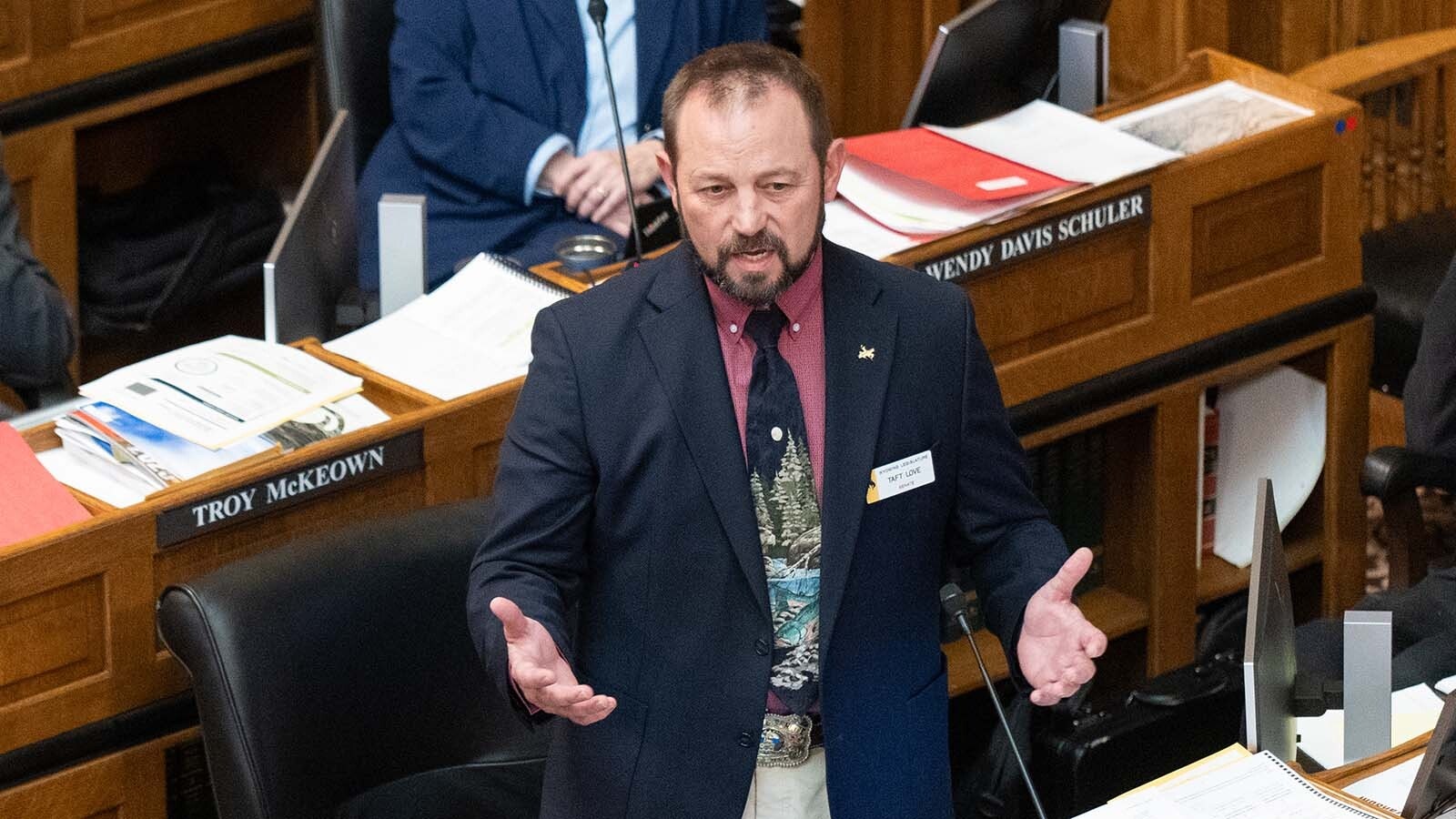Wyoming’s major electricity provider areas does not lock people out of their thermostats during heat waves, the company said last week.
But Rocky Mountain Power does have an opt-in, incentivized program by which the company can shut off home air-conditioning units for a few minutes at a time, Tiffany Erickson, the company’s spokeswoman, told Cowboy State Daily on Friday. That program has not yet come to Wyoming but is active in Utah.
The company’s voluntary “Cool-Keeper” conservation program is not the same as a smart-thermostat program that locked thousands of Colorado thermostats last week amid record-high temperatures, said Erickson.
Energy customers in Colorado last week took to social media to condemn Xcel Energy – a different company serving Colorado – for using its own version of an air-conditioning shutdown program during a heat wave, Fox Business reported.
“Xcel Energy pointed out that the customers were part of a rewards program that gave them a discount on their energy bill in exchange for permission to give the company some control over their smart thermostats,” according to Fox Business.
‘Goodness No’
About a decade ago, Rocky Mountain Power launched its “Cool-Keeper” program in Utah. Grid customers signing up for the program have a control unit installed in their air conditioners in exchange for a $30 annual bonus.
During peak energy-usage hours and possible grid strain, Rocky Mountain Power may shut off the cooling unit in people’s air conditioners for a few minutes at a time to lighten the energy demand, said Erickson. The fan may still circulate air.
Erickson said Rocky Mountain Power does not control people’s thermostats.
“Oh goodness no,” she said. “We don’t do that.”
Rocky Mountain Power’s Cool-Keeper device is installed in a home’s air conditioner. According to the company’s website, the device can be activated between May 1 and Sept. 30 annually, and between 2 p.m. and 9 p.m. in the day, for a grand total of no more than 100 hours per year; and it cannot be activated on weekends or holidays.
These limits don’t apply if there’s a “system emergency,” the site says.
“In the event of a system emergency, Rocky Mountain Power may, at its discretion, expand the (shutdown) criteria beyond the parameters listed,” it says.
Erickson said the company usually shuts people’s air conditioners down for between 11 and 15 minutes at a time.
“We did a survey last fall and there’s quite a few customers that didn’t even notice when those activations took place,” said Erickson. “But it’s essentially an incentive for helping use energy wisely. We’re asking customers to kind of participate in that effort for efficiency, and then they receive that monthly bill credit” totaling $30 per year.
Although the program is not yet available in Wyoming, Erickson said this and other conservation programs are being developed and encouraged to mitigate grid strain, especially as the electric vehicle market grows.
Rocky Mountain Power delivers electricity to many of Wyoming’s urban regions, along with Utah and Idaho. Its parent company Pacificorp also serves Washington and Oregon.
Cooperative
Most rural Wyoming areas are served by smaller energy cooperatives which buy their power from larger generators such as Deseret Power or Tri-State.
High Plains Power does not control people’s thermostats from the outside, Jon Mayes, chief financial officer of the company told Cowboy State Daily on Wednesday.
High Plains Power serves large rural areas throughout Central Wyoming.
“We don’t have a thermostat program right now,” said Mayes, noting that the company still is contemplating different “management demand response programs,” that is, programs that discourage power use during the expensive and high-usage afternoon hours.
The programs are appealing because they save co-op members money, said Mayes.
“We’re kind of exploring right now,” he said. For example, the company is considering an electric-vehicle charging rate that is lower during off-peak, or non-afternoon hours.
During the peak hours of 4:30-9:30 p.m., most residents’ power usage peaks and, with that high demand, High Plains Power’s generator, Tri-State, also charges more money for power during those times.
The goal is to determine “what are some ways we can encourage people to reduce electricity here (peak hours) but increase it somewhere else?” said Mayes. “If we can get you to use (power) off-peak… we can save money” throughout the co-op.
Black Hills
Although largely marketed as a natural-gas supplier, Black Hills Energy’s electric utility also supplies electricity in Wyoming, according to the company’s website.
Laurie Farkas, spokeswoman for Black Hills energy, told Cowboy State Daily in a Tuesday email that the company has no thermostat-governing conservation program in Wyoming.
A fourth Wyoming power company, Bridger Valley Electric Association, did not immediately return a voicemail requesting comment.





